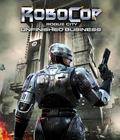WP: Who has the honor to speak with us? State your name, rank and occupation!
I'm David Anfossi, and I'm a producer on Deus Ex: Human Revolution.
WP: We're finally sitting down with the final build of Deus Ex: Human Revolution. How does it feel to finally be done?
DA: (laughs) It's like the baby blues because we worked on that for four years. We achieved something great, I think, because it's very difficult to produce a Deus Ex kind of game. It's very complex, so it was a true challenge. At the beginning, we were not sure, but now that it's done and we are very happy, and we enjoy a vacation.
WP: How imposing was it to design a new game in the shadow of the original Deus Ex? Even though Deus Ex is so many years old, many gamers hold it up in extremely high regard. Did you feel like you had a clean slate to start with, or were there a lot of expectations that you felt you had to meet?
DA: In fact, we faced a lot of different challenges. We are playing the two games or we have to be in the studio to be the lead team, build a new technology, and revive the Deus Ex franchise. It was a lot of pressure, but I'm very happy because we have a very strong team of talented people. I was more confident than at the beginning. We just did our own work. We played those two games, we analyzed them before we even started the concept, and we extracted what we thought was essential for a Deus Ex game. We based our concept on that. In the end, the final result is very close to our vision at the beginning. It's a success for us.
WP: We've talked about the game a lot. We've played through the preview build, so we know what goes into the gameplay and the stealth aspects and the combat aspects. You mentioned that you had to build a new technology. Tell us a little bit about what goes into building a game engine. Did you use anything off the shelf? Did you build Deus Ex: Human Revolution from the ground up? How did you build the world?
DA: We used an in-house engine from Crystal [Dynamics] — the Tomb Raider engine, in fact, because it was easy for us to prototype with this engine in the beginning. In four years, a lot of things changed. Because we have a lot of open space, we had to completely rebuild the lighting system. It's just an example. We changed a lot of things. We have a Social mechanic source so we had to create it. For this game, if I am correct, we created more than 600 new features to support the different play styles.
If you take every level, you want to support Stealth, Combat, Social and Hacking, which is a very big challenge. We started by building different maps to test our mechanics together, and then we think. In the end, we close the preproduction with a vertical slice, which is a part of the game. It's not final, but it's close to being final. That's the first time you have all the mechanics together. At this point, you know if you've succeeded or not and what you have to do to improve the experience. We did that on a small map, put that together, and we just bring them that to improve the mechanics and make sure that it is smooth and that the player will be pleased with the mechanics.
WP: What about building Deus Ex: Human Revolution as a very in-depth single-player experience? Today, it seems that everyone is pushing toward multiplayer. How difficult was it to convince your bosses and parent company that you're just going to do a single-player game and not touch any multiplayer?
DA: You're right. There is a trend for multiplayer, and all publishers want multiplayer. What we did was be in the studio, to be the lead team, revive the Deus Ex franchise and everything, I think it was enough for us. It took us four years, so we just convinced the publisher that if we had to split the energy of the team on two different modes, we would lose some quality. We proved that during the conceptual phase, and they just supported us. So there was no problem on that side. They actually understood that we had to deliver a great game, and we just had to focus on the single-player.
WP: Going back to the technology and the engine a little bit, you targeted three different platforms — the PlayStation 3, Xbox 360 and PC. In doing that, did you have a lead platform and then port it over? Did you develop them simultaneously? How much more challenging is it to develop on the PC and consoles versus just the console or just the PC?
DA: I used to develop on the lead platform for different games before, but for this one, we developed all platforms in parallel. It was very important for us because you have so much content that if you decide to port your content to another platform, you will lose a lot of time and you will have to make some compromises. By doing them in parallel, you create the same content for all platforms at the same time so you can play the different platforms at the same time, and that's very important for the playtesting, for people using the keyboard as well as controllers. That was our strategy.
There were some compromises about the disc space. For example, we have more SKUs on the X360 because we are limited to just one language per disc, compared to the Blu-ray, where we can put more stuff. For the PC version, we upgraded the textures. That's the only difference. Other than that, the experience is the same.
WP: What about controls? A lot of PC gamers complain that in multiplatform titles, they're forced to use an Xbox controller on the PC. Will you be able to use the mouse and keyboard on the PC version of Deus Ex?
DA: No, no, no! We fought the game designer specifically on that to make sure that everything is smooth and pretty and fits with the current standard. We worked specifically on that to make sure that everything is fine, and we did a lot of playtests on the console and PC, so we could tweak the controls separately. Even between the PS3 and X360, we did specific tweaks because you don't have the same sensitivity between the sticks, so we had to tweak that to make sure that it was smooth as well. We tweaked every control.
WP: On the PC side of things, with the original Deus Ex, modders changed it and upgraded it. In fact, there's a new hack out that redoes all the graphics in high resolution for a current PC. Have you and your team given any thought to releasing any sort of mod tools to supporting that community on the PC with DE: Human Revolution?
DA: It was not in the plan, sorry. Maybe things have changed since I'm on vacation now, and the technology director will inform me otherwise, but I don't think so.
WP: Looking back through the development process and the game, is there any moment that stood out as an "a-ha!" moment? When did you know that you had something that was a top-tier game versus just another average game?
DA: To be honest, it took us more than two years to be more confident. As I mentioned, we did the vertical slice two times because the first time, it was not there for different reasons. Given that, we came back to our desks and worked again to finally find the Deus Ex that we see. But it took us two years, so in 2009, we were sure that we had a Deus Ex game, and we just extrapolated that through the entire game. But yeah, two years.
The same thing for Adam Jensen. It was very important for us to give him different iterations and not just leave it as some concept art of Adam Jensen. We had to challenge ourselves and make sure that it was perfect so it also took us two years to find the "right" Adam Jensen.
WP: Even though most of the game is played from the first-person view, where you don't really see Adam Jensen, was getting the perfect look for the character that important? Do you think it makes that big of a difference?
DA: Yes. It's not just the point of the visual, but also the credibility of the character. In the universe we created, there's not just Adam Jensen. We can talk about [Yelena] Federova, who is very appealing, [Lawrence] Barrett, [Jaron] Namir — different story characters and we created credible backgrounds for them. If you play the game, you can understand their actions. It's not black-and-white, you know. Even if you don't agree with them, you can understand them. We build every story character like that. Visually, but they also have a very strong background.
WP: If you had to sum it up in two to three sentences, what really makes Deus Ex: Human Revolution a game that's worth playing?
DA: It's easy, in fact, because you play as you want to play the game. It was our mandate because it could be complex due to all the different gameplay mechanics, but in the end, you play it as you want to play it.
WP: Is there anything that we haven't talked about that you wanted to add?
DA: We are very happy with the results because it fits perfectly with the ambition that we had in the beginning. We are very happy that the final experience is right, so now we are just eager to hear from the reception from the gamers.
More articles about Deus Ex: Human Revolution











 In Deus Ex: Human Revolution you play Adam Jensen, a security specialist, handpicked to oversee the defense of one of America's most experimental biotechnology firms. But when a black ops team breaks in and kills the scientists you were hired to protect, everything you thought you knew about your job changes.
In Deus Ex: Human Revolution you play Adam Jensen, a security specialist, handpicked to oversee the defense of one of America's most experimental biotechnology firms. But when a black ops team breaks in and kills the scientists you were hired to protect, everything you thought you knew about your job changes.